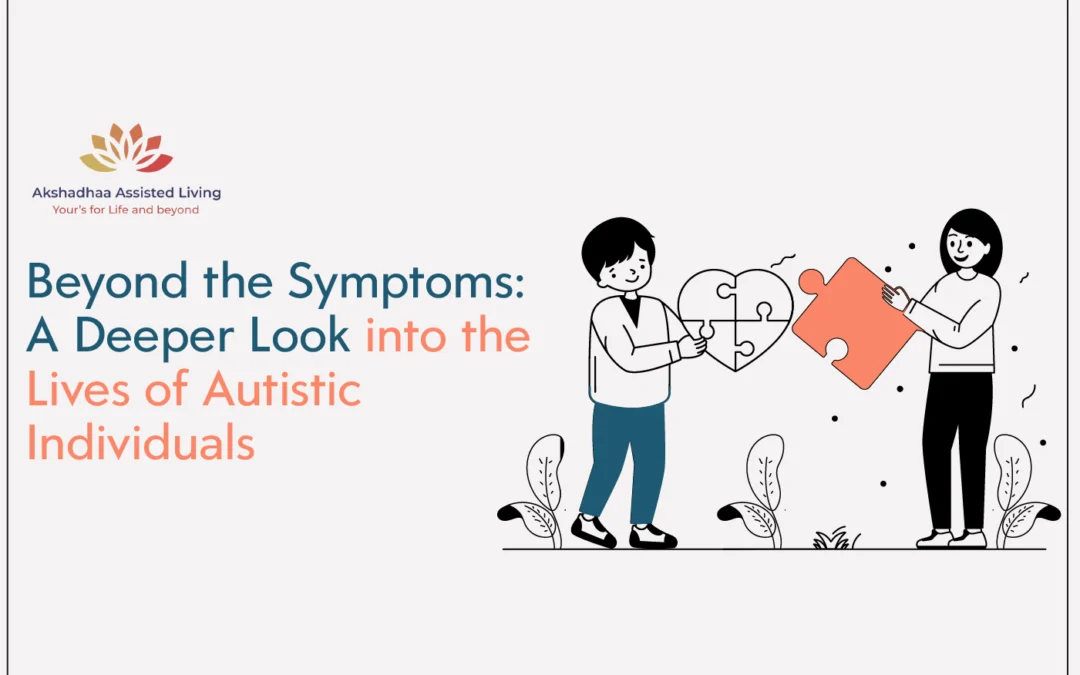In a world where most people instinctively understand each other’s moods, gestures, and subtle cues, autistic individuals experience this connection differently. For them, every conversation feels like a different language, with each word and expression requiring deep analysis. It’s not that they don’t want to engage; it’s just that the usual unspoken rules and rhythms of social interactions don’t always make sense. The humor others find obvious, the sarcasm that cuts through the air, and the fleeting glances that carry entire messages can feel like fragments of a puzzle with missing pieces.
As the world moves at its usual pace, autistic individuals navigate it with an effort that might seem invisible to others—a constant process of decoding, questioning, and sometimes, simply trying to keep up. This isn’t about not fitting in; it’s the reality of interacting with a world that speaks in a code few understand without effort.
Now, let’s understand what autism and the unique challenges and strengths of autistic individuals is in an often-unfamiliar world.
What is Autism?
Autism Spectrum Disorder (ASD) is a neurodevelopmental condition that affects social communication, behavior, and sensory processing. Individuals with autism often struggle with understanding social cues like facial expressions and tone of voice and may engage in repetitive behaviors or have intense interests. Sensory sensitivities are common symptoms, such as heightened or reduced responses to light, sound, or touch. ASD varies widely in severity, and while there is no cure, individuals can lead fulfilling lives with appropriate support and intervention.
Autistic individuals may experience challenges in several key areas, including:
Communication: For many autistic individuals, understanding and expressing thoughts and emotions can be difficult. They may find it difficult to communicate effectively through spoken words, gestures, facial expressions, or touch. The difficulty in interpreting and conveying these signals often creates barriers to social interaction.
Learning: They may exhibit uneven learning patterns, with some skills developing more slowly than others. For example, while they struggle with communication, they might excel in art, music, mathematics, or tasks involving memory and problem-solving. Despite challenges in other places, these strengths can often shine in academic or analytical settings.
Transitions: People with autism often find it difficult to adjust to changes in their daily routine or transition from one activity to another. This resistance to change can lead to anxiety and frustration, especially when routine disruptions are unexpected.
Sensory Stimulation: Differences in sensory processing are common among autistic people. They may have heightened or diminished sensitivity to sensory input, such as sounds, lights, textures, or temperature. Additionally, intense, focused interests in specific topics or actions are typical, with some individuals immersing themselves in particular subjects with great detail and passion.
Autism Symptoms
Autism symptoms typically emerge before the age of 3 and continue, some individuals may show signs from birth.
Common Signs of Autism:
- Avoiding or making limited eye contact
- Repeating certain behaviors, such as repeating words or phrases, rocking back and forth, or fidgeting with objects (e.g., flipping a light switch)
- Being overly sensitive to sounds, touch, smells, or visual stimuli that seem normal to others
- Difficulty understanding or using speech, gestures, facial expressions, or tone of voice
- Struggling to adapt to changes in routine
- Difficulty understanding what others are thinking or feeling
- Preferring to be alone or finding it challenging to make friends
- Feeling anxious about social interactions
- Struggling to express emotions or feelings clearly
- Taking things literally or having trouble understanding sarcasm
- Appearing blunt, uninterested, or rude to others despite not intending to be
In some cases, individuals with autism may also experience seizures, which may not appear until adolescence.
The Hidden Strengths of Autistic Individuals:
While the challenges autistic individuals face is often discussed, it’s equally important to highlight their remarkable strengths.
- Focusing on Detail
Many autistic people excel in areas that require intense focus and attention to detail. Whether in math, art, or music, they may possess unique abilities that often go unnoticed. Their ability to concentrate deeply on a specific task allows them to achieve high skill levels, particularly in areas that demand precision and pattern recognition. Though sometimes overlooked, these strengths can contribute to groundbreaking work in fields like science, technology, and the arts, where attention to detail is crucial.
- Power of Routine
For many autistic people, routine is more than just a preference—it’s a source of comfort and security. A predictable schedule provides a sense of control in a world that can feel chaotic. Disruptions to this routine can cause significant distress, leading to heightened anxiety or frustration. However, this dependence on routine also provides insight into how autistic individuals process information. Their preference for structure often reflects a need for mental organization, reducing the cognitive load required to navigate daily life. Understanding and respecting this need for routine can create environments where autistic individuals feel more comfortable and capable of thriving.
- Sensory Perception
A lesser-discussed aspect of autism is sensory sensitivities, where certain stimuli like bright lights or loud noises can be overwhelming. What seems like a normal experience to others can be intolerable for autistic individuals. While this heightened sensitivity can be challenging, they can deeply appreciate certain sounds, colors, or sensations. By recognizing and accommodating these sensitivities, we can create environments where autistic individuals feel more comfortable and express their unique perspectives better.
How Akshadhaa Assisted Living Supports Autistic Individuals
Akshadhaa Assisted Living for Special Needs is dedicated to providing a supportive environment for neurodiverse individuals, helping them thrive in a confusing world. The community at Akshadhaa is designed to meet the unique needs of autistic people, offering tailored care and specialized amenities. The environment promotes emotional well-being, sensory comfort, and independence, allowing individuals to live fulfilling lives while receiving the support they need.
Akshadhaa integrates advanced technologies like CRM, ERP, and IoT to precisely meet residents’ needs. Real-time health monitoring, personalized care, and seamless communication promote an inclusive, supportive community where neurodiverse individuals can thrive and lead independent, meaningful lives.
Read more about Autism-Friendly Workplaces for more insights
Conclusion
Autistic individuals navigate a world entirely of complexities and confusion. The key to improving their experiences is fostering an environment where clear communication, empathy, and support are prioritized. By embracing neurodiversity and making small changes to communication and social interactions, we can create a more inclusive world where neurodiverse individuals feel seen, heard, and understood. Contact us today to discover how Akshadhaa Assisted Living supports autistic individuals in a nurturing and inclusive environment.
Follow us for more insights Linkedin

